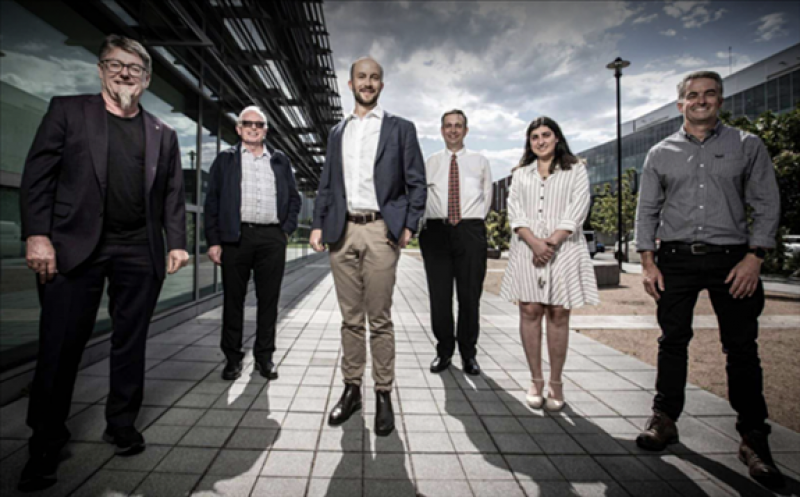A research collaboration has led to the discovery of Edge Functionalized Graphene (EFG), a form of graphene which is both highly conductive and processable, and promises to improve the cost and efficiency of lithium-ion batteries.
 Image: Paul Jones/University of Wollongong
Image: Paul Jones/University of Wollongong
Researchers at the University of Wollongong (UOW) in New South Wales, in collaboration with scientists from the ARC Centre of Excellence for Electromaterials Science and the Australian National Fabrication Facility, made the discovery. They were led by Professor David Officer and Professor Gordon Wallace.
EFG is comprised of nano platelets with excellent potential as a valuable carbon additive for a variety of electrochemical devices, according to the researchers. The team said these unique properties mean that the materials will be useful in energy storage, both for batteries and supercapacitors, as well as in composites for use as sensors, reinforcement materials or non-metallic conductors.
The researchers are now working with private company Sicona Battery Technologies to demonstrate how to scale up production. Sicona has made binding agreements with UOW for the acquisition of its intellectual property related to EFG.
“Like many materials, finding a way to exploit the extraordinary properties of graphene in useful applications is critically dependent on making the graphene processable,” said Officer. “With EFG, we have been able to not only create a process that produces a unique graphene that can be used as a powder, dough, paste or dispersion, but a process that we believe is commercially scalable. Our commercial partners Sicona have recognized this.”